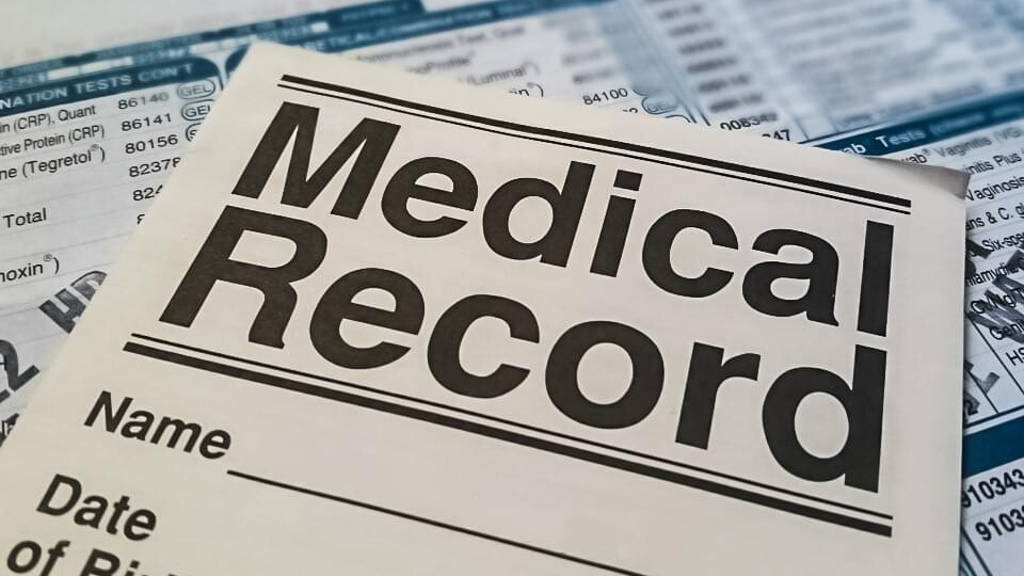What does that mean to the average American, is a question Yahoo tries to answer in an article about the pro’s and con’s of EHR’s. An advantage is that keeping better records means better care. A big downside is that digital medical data can be stolen.
Because though it might seem less than personal when a general practitioner is typing away on a tablet or pc while talking to a patient, but research shows that doctors who use electronic health records tend to better follow accepted treatment guidelines and have a lower rate of medication mistakes.
Also, being able to view the information in your electronic health records on a computer, tablet, or mobile device can help people help stay better informed about their own health. For example when combining this information with health data from tracking devices such as wearables and body sensors. This is not too far away. Though right now ypeoplemay not be able to quickly access there complete digital medical record, increasingly, healthcare providers are offering a way for to see some (if not yet all) of it by means of a patient portal.
Sounds great, especially in a health crisis, when quick access to the correct information can be the difference between life and death. However, some steps need to be taken first to make this possible. Interoperability, the seamless movement of information from one healthcare provider to another, is still a plan and not a reality. First, every healthcare professional and organisation needs to be part of the same healthcare system or use the same medical records software.
Also, accessing digital medical data through one ore more EHR or patient portal increases the risk of the growing problem of medical identity theft. According to Joy Pritts, a former chief privacy officer at the Department of Health and Human Services and now a health information privacy consultant, EHRs are full of personal data that thieves can easily use. “Your Social Security number, date of birth, and health insurance number are three of the top things contained in medical records that are highly lucrative for the bad guys,” Pritts states.
Dena Mendelsohn, staff attorney for Consumers Union, the policy and mobilization arm of Consumer Reports, says we are still years away from achieving this. “Portals have some usefulness for consumers. But we are years away from the promise of what EHRs should be. We’re so far from it that we don’t know when it’s going to happen.”
Because though it might seem less than personal when a general practitioner is typing away on a tablet or pc while talking to a patient, but research shows that doctors who use electronic health records tend to better follow accepted treatment guidelines and have a lower rate of medication mistakes.
Also, being able to view the information in your electronic health records on a computer, tablet, or mobile device can help people help stay better informed about their own health. For example when combining this information with health data from tracking devices such as wearables and body sensors. This is not too far away. Though right now ypeoplemay not be able to quickly access there complete digital medical record, increasingly, healthcare providers are offering a way for to see some (if not yet all) of it by means of a patient portal.
One EHR: more effectiveness
‘By logging on to a patient portal, you may be able to see the results of a recent lab test, for example, or find out when you last had a tetanus shot. Some are set up so that you can email back and forth with your healthcare provider,’ Yahoo writes. ‘ If all of your doctors, hospitals, and labs can share your health information with each other—digitally, in real time—they can work more effectively as a team and more easily stay in the loop on your illnesses, treatments, and surgeries.’Sounds great, especially in a health crisis, when quick access to the correct information can be the difference between life and death. However, some steps need to be taken first to make this possible. Interoperability, the seamless movement of information from one healthcare provider to another, is still a plan and not a reality. First, every healthcare professional and organisation needs to be part of the same healthcare system or use the same medical records software.
Also, accessing digital medical data through one ore more EHR or patient portal increases the risk of the growing problem of medical identity theft. According to Joy Pritts, a former chief privacy officer at the Department of Health and Human Services and now a health information privacy consultant, EHRs are full of personal data that thieves can easily use. “Your Social Security number, date of birth, and health insurance number are three of the top things contained in medical records that are highly lucrative for the bad guys,” Pritts states.
Security risks
Having multiple EHRs, adds Chuck Bell, programs director for Consumers Union, might be a security concern because it provides hackers with a larger number of digital targets to strike. In this respect growing towards a single EHR or single patient portal has the added benefit of giving cybercriminals less points of access.Dena Mendelsohn, staff attorney for Consumers Union, the policy and mobilization arm of Consumer Reports, says we are still years away from achieving this. “Portals have some usefulness for consumers. But we are years away from the promise of what EHRs should be. We’re so far from it that we don’t know when it’s going to happen.”






